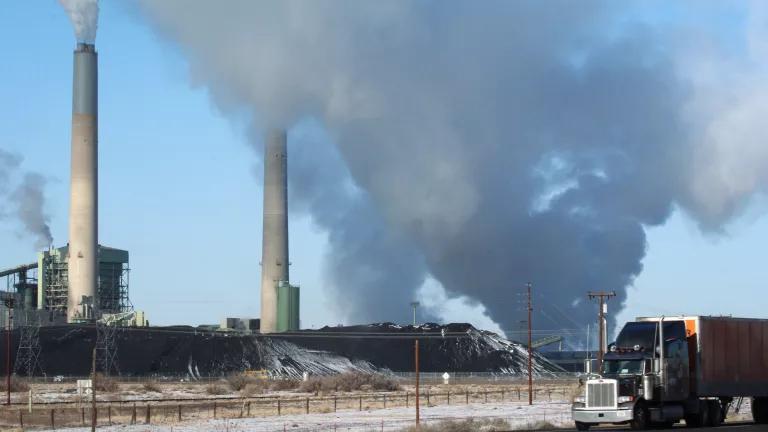Big Oil Made Billions Amidst the Hottest Year on Record
As the climate crisis intensifies, the fossil fuel industry is spending billions to secure oil and gas production into the 2030s.

Pumpjacks at an oil field in the Central Valley, California.
Hal Bergman/iStock
As a part of our series tracking Big Oil profits, here’s the latest snapshot of what 15 oil and gas companies operating in the U.S. earned for the 2023 year and for the fourth quarter:
Company Name | Year Ended Dec. 31 2023 | Fourth Quarter 2023 Net Income |
ExxonMobil | $36,010,000,000 | |
Chevron | $21,369,000,000 | |
Shell | $19,360,000,000 | |
TotalEnergies | $21,384,000,000 | |
ConocoPhillips | $10,957,000,000 | |
Valero Energy | $9,149,000,000 | |
BP | $15,239,000,000 | |
Phillips 66 | $7,015,000,000 | |
EOG Resources | $7,594,000,000 | |
Cheniere | $9,900,000,000 | |
Pioneer Natural Resources | $4,894,000,000 | |
Occidental Petroleum | $3,773,000,000 | |
Diamondback Energy | $3,336,000,000 | |
Marathon Oil | $1,451,000,000 | |
Hess | $1,382,000,000 | |
Totals: | $172,813,000,000 | $28,808,000,000 |
This year was marked by several mergers and acquisitions in the oil and gas sector as fossil fuel majors fight for dominance in the Permian Basin of Texas and New Mexico. ExxonMobil will acquire Pioneer Natural Resources for $59.5 billion, cementing ExxonMobil as the largest fossil fuels operator in the Permian Basin. Chevron’s deal to acquire Hess for $53 billion will be finalized in 2024. Yet another company on our list will soon merge as well, with Diamondback Energy recently announcing it will merge with Endeavor Energy Resources in a $26 billion deal. Across the sector, multibillion-dollar mergers are pointing to a consolidation of resources and power that demands our scrutiny.
Rather than using their billions in profits to grow their renewable energy portfolios, Big Oil is expanding their fossil fuel development. ExxonMobil has steered clear of wind and solar investments, instead committing $20 billion to so-called “lower-emissions opportunities.” These opportunities include biofuels, hydrogen derived from methane, and carbon capture and storage, none of which work toward phasing out fossil fuel production. Shell retracted its pledge to decrease fossil fuel output by one to two percent per year, instead claiming that production will remain stable until 2030. Shell plans to invest $40 billion in oil and gas production between 2023 and 2035, while avoiding investments in renewable energy.
Continued fossil fuel expansion is even more disconcerting coupled with the fact that Big Oil is using taxpayer dollars for exploration and development. Billions of dollars in public subsidies support the development of new oil and gas wells in the Permian Basin and across the country every year. Not only are taxpayers paying for new oil and gas wells, they are also paying for the cleanup of unplugged oil and gas wells that fossil fuel companies have left to pollute the environment.
The industry’s aversion to renewable energy puts shareholder profit over the planet and people’s lives. While climate change intensifies, these companies are spending billions of dollars to grow their oil and gas assets. Between February 2023 and January 2024, for the first time ever, the average global air temperature breached 1.5 degrees Celsius. The Paris Climate Agreement’s goal is to limit the long-term temperature average to below 1.5 degrees Celsius, and although the long-term trend remains below that threshold for now, this year’s global temperatures are yet another major wake-up call.
Big Oil spent staggering sums on stock buybacks, funneling profits straight to shareholders and executives while energy prices remain high and the planet warms. ExxonMobil, Chevron, Shell, TotalEnergies SE, and BP Plc spent $113.8 billion on dividends and stock buybacks in 2023. This is the biggest payout to shareholders from oil and gas majors ever, and it happened during the hottest year in recorded history. These companies’ decision to shirk their responsibility to advance a renewable energy transition is shortsighted and detrimental to investors. Decarbonization deadlines draw closer by the day, yet fossil fuel companies continue to expand their operations and lobby for new fossil fuel permits and leasing. When the world transitions to renewable energy—a trend that is already taking place—investors will be left with stranded assets that risk global economic fallout. It is time for the fossil fuel industry to be a part of a solution to the climate crisis that they’ve created.




